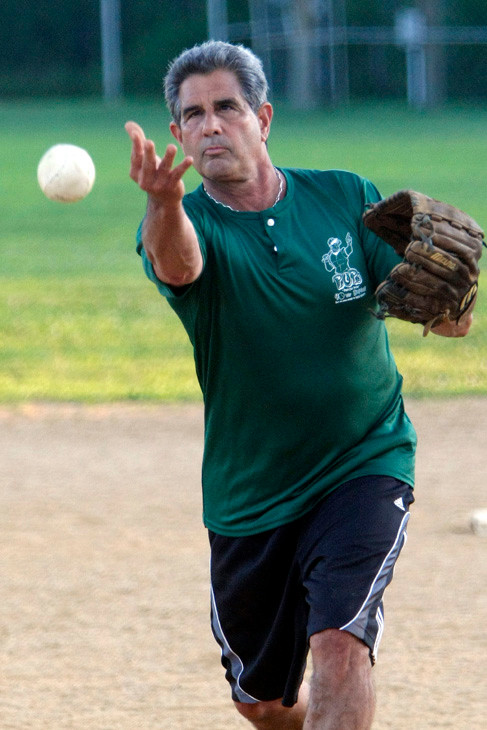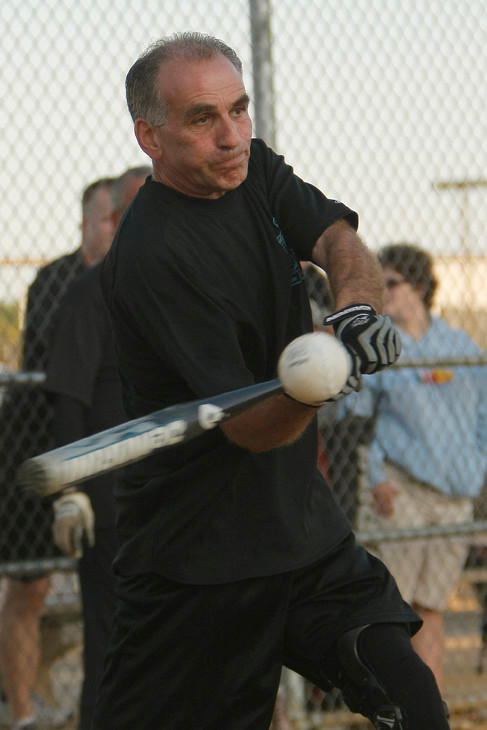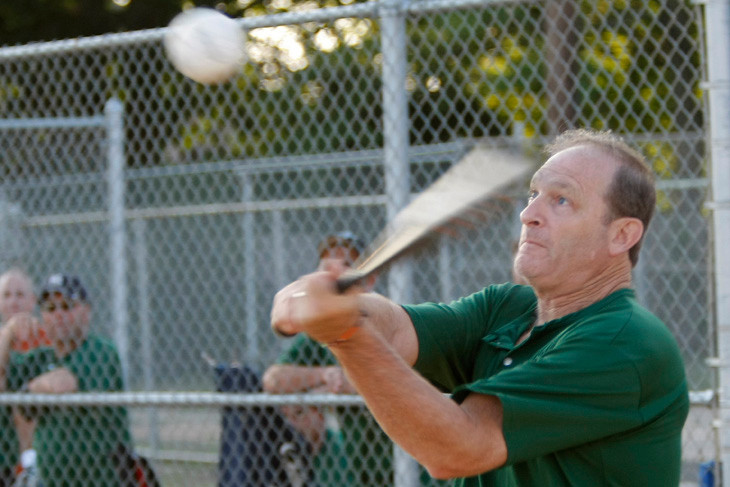Softball league continues to grow
Like each of its 650 members, POPS softball keeps getting better with age.
When Merrick resident Keith Pastuch founded the league in 1999, it got off the ground with four teams and never in his wildest dreams did he think it would one day swell to 38 with a waiting list.
“The growth has been amazing,” said Pastuch, a 58-year-old chiropractor responsible for everything from securing fields and umpires to the annual end-of-year dinner. “Each roster has anywhere from 16 to 19 players, and we’re at the point where we have two full teams waiting to join,” he added. “We advertised years ago to promote the league, but not recently and much of the growth has come from word of mouth.”
The 40-and-over league boasts 22 teams divided into three divisions — the American (most competitive), National (less established, not yet as competitive) and Central (newer teams) — while its 50-and-over league is comprised of 16 teams in two divisions. A regular season consisting of a dozen games is followed by a double-elimination playoff tournament that culminates with the crowning of five champions.
“About 150 guys play in both leagues,” Pastuch said. “We all do it for fun and I’m happy to say arguments are rare, but at the same time everyone is competitive and some games get intense.”
Pastuch’s 50-and-over league team sits in first place with an undefeated record through nine games following a 12-7 victory July 14, but it’s a long way to the title. “The playoffs are a new season,” he said. “Last year I was on a team that went 2-10 in the regular season and won the whole thing, so upsets can happen.”
Oceanside’s Andy Eisner, 54, in his 11th year as a POPS (Past Our Prime Softball) player, serves as the league’s Director of Public Relations and produces a monthly newsletter. He joined soon after moving to the area and has developed dozens of lasting friendships. “It has become a huge family,” Eisner said. “My wife and I socialize with a lot of guys and their wives, and you’ll find that happening all around the league. Everyone is friendly and there’s great camaraderie.
“It’s also the thrill of competition, and getting out and having fun and not giving up your playing days,” he added.
Some rule changes from traditional softball helps keep injuries on POPS’ fields to a minimum, Eisner said. Most of the tweaks affect baserunning. All plays at any base are force plays, all bases can be overrun, and sliding is prohibited. Moreover, a runner is not permitted to touch home plate. Runs are scored by crossing a line that starts at the edge of the plate and ends at the corner of the third-base dugout.
“The rules are designed to avoid injuries,” Pastuch explained. “I see sports injuries at work every day. The thing we do that’s most significantly different is a runner can go two feet to the right or left of a base to avoid contact with a fielder.”
Another significant fact about POPS is it gives back to communities where members reside. Just last month the league awarded 20 college scholarships to graduating seniors from Oceanside, Calhoun, Bellmore-JFK, Mepham, Hewlett, South Side, East Meadow, Wantagh and Plainview-JFK high schools.
While additional league expansion hinges on field availability, Pastuch is quite content with the way it stands.
“I didn’t care if we stayed at four teams forever,” he said, “as long as I continued to play.”

 60.0°,
Overcast
60.0°,
Overcast 









